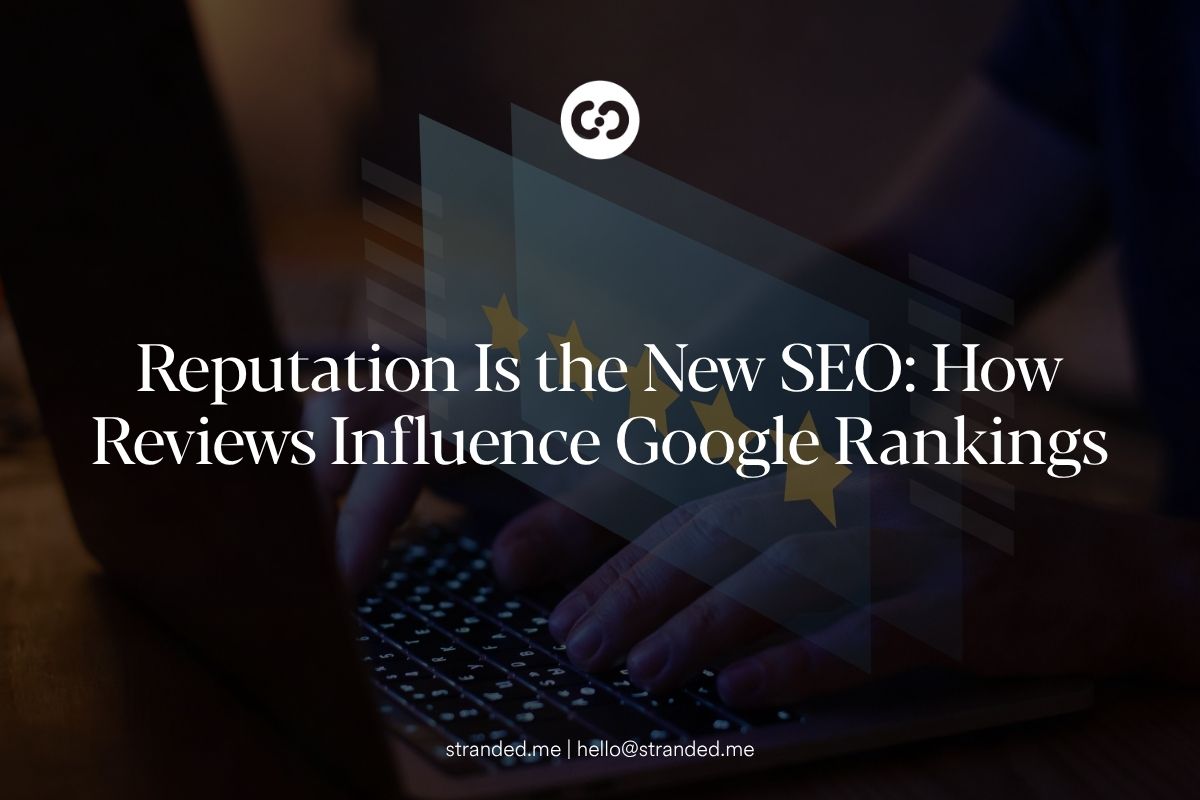
© Stranded
In the aesthetics industry, trust is everything. A patient doesn’t just book a treatment; they invest in expertise, safety, and confidence. Today, Google measures that trust. Reviews, ratings, and authentic client voices have become some of the strongest local SEO signals for med spas and aesthetic clinics. Reputation, quite literally, is the new SEO.
Google has publicly stated that
more reviews and positive ratings can improve a business’s local ranking.
In competitive markets like Los Angeles, Miami, or Scottsdale, reputation signals often determine who appears in the top three local results.
Independent research from
BrightLocal
confirms that review volume, recency, and quality contribute to Google’s “prominence” factor—key to local visibility.
Studies from
Search Engine Land
show that detailed, photo-rich reviews mentioning specific procedures (like “Botox” or “HydraFacial”) help Google associate those keywords with your business.
Similarly,
Whitespark
highlights review recency as an underrated ranking factor going into 2026.
- Quantity, quality, and recency of reviews directly influence local rankings.
- Keywords mentioned in reviews (e.g., “Botox,” “Hydrafacial”) strengthen topical relevance.
- Owner responses reinforce engagement, professionalism, and credibility.
Consumers trust people more than brands. A real client sharing their story builds emotional proof—something even the best ad copy can’t replicate. Google’s E-E-A-T framework favors authentic feedback because it reflects real experience.
- Include review excerpts on service pages to enhance relevance.
- Use structured data markup to make reviews eligible for star snippets.
- Encourage detailed reviews that mention the specific treatment experience.
Your Google Business Profile (GBP) is the engine of your local reputation. Verified photos, complete business information, and frequent posts amplify authority. Active listings tend to earn far more actions (calls, directions, website clicks) than inactive ones.
- Respond to every review, positive or negative, within 48 hours.
- Post before-and-after images, treatment spotlights, and staff introductions weekly.
- Keep services, hours, and categories updated across all profiles.
A thoughtful, professional reply demonstrates empathy and integrity—to the reviewer and to prospects reading your profile. Responsiveness signals active business management and can improve local rankings.
Tip: Avoid emotional language or HIPAA-sensitive details. Thank the reviewer, acknowledge feedback, and offer offline resolution.
Embedding reviews builds trust and sends strong signals to users and search engines. Feature verified reviews on procedure pages, homepage banners, and testimonial sections with schema.
- Use
AggregateRating and Review schema.
- Include reviewer first names and city for authenticity.
- Rotate fresh reviews monthly to maintain content freshness.
RealSelf, Yelp, and Facebook still matter—Google aggregates brand mentions from these sources as part of broader reputation signals. Keep profiles consistent and claim every listing.
Avoid incentives or gating. Use automated, neutral post-visit requests via email/SMS that invite honest feedback.
- Send requests within 24–48 hours of service completion.
- Provide direct links to Google and RealSelf profiles.
- Thank patients publicly and privately.
Track review count, rating average, response rate, and keyword mentions. Correlate review growth with impressions, calls, and form fills in GA4 and GBP Insights.
Reputation is central to SEO. Every review, response, and patient story contributes to digital authority. Treat reputation like SEO to win long-term visibility and trust.
At Stranded, we integrate reputation management with SEO. From review automation and schema to GBP optimization, we turn patient feedback into measurable visibility.
Book a Free Strategy Session
Yes. Review volume, frequency, and sentiment are key local ranking factors. Authentic, recent reviews improve visibility in Maps results.
Regularly—ideally after every completed service—to maintain a steady cadence of fresh feedback.
Flag policy-violating reviews in your Google Business Profile; escalate via Google Support if needed.
Google carries the most SEO weight. RealSelf, Yelp, and Facebook strengthen brand trust and referrals.